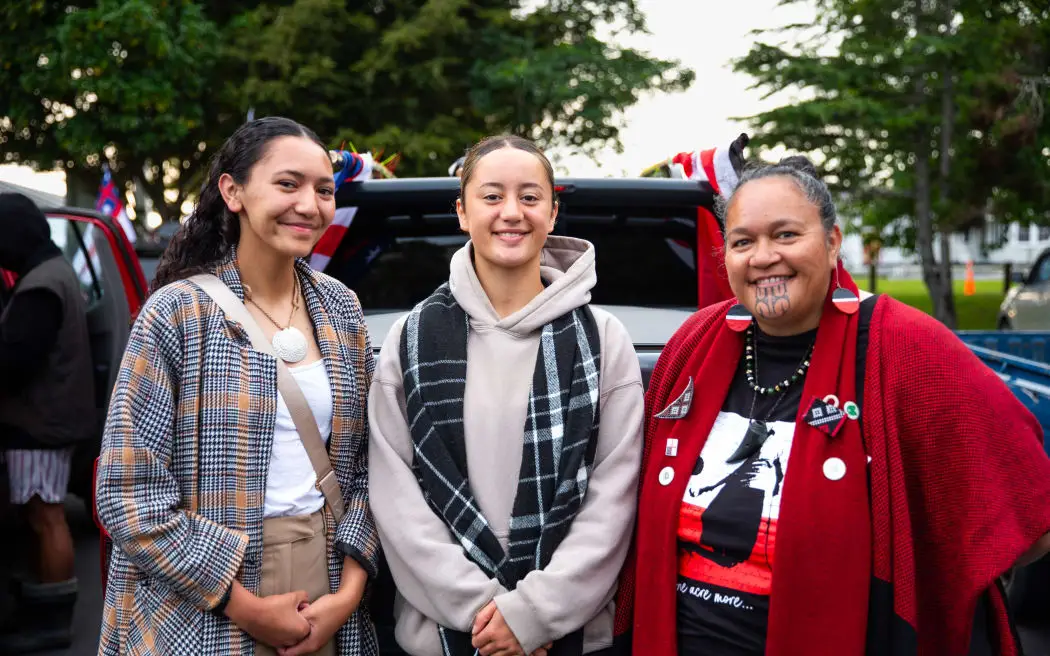The Hīkoi Against the Treaty Principles Bill: A Nation’s Cry for Change
In recent weeks, New Zealand has witnessed a unprecedented display of unity and determination as thousands of people took to the streets to protest against the proposed Treaty of Waitangi principles bill. The hīkoi, which translates to “caravan” or “journey,” has become a powerful symbol of resistance against what many see as an attempt to erase the country’s indigenous identity.
The hīkoi began in Porirua, where participants painted signs and prepared for their journey to Parliament. Aperahama Edwards, one of the key organisers, reflected on the experience: “Every day we’ve observed and experienced the sharing, generosity and aroha of Aotearoa. As we’ve travelled, that’s been a consistent observation.”
As the hīkoi made its way to Wellington, it became clear that this was no ordinary protest movement. The crowd grew in size with each passing day, filling the forecourt of Parliament and spilling into nearby streets. Some even climbed the large pōhutakawa trees on Parliament’s lawn.
The organisers had expected a strong showing of support, but nothing could have prepared them for the sheer scale of the response. People from all walks of life – including Māori, Pākehā, and non-binary individuals – came together to demand change.
At the heart of the hīkoi was a desire to protect the Treaty of Waitangi, New Zealand’s founding document. The principles bill, which has been met with widespread criticism, would effectively repeal key provisions of the treaty that are essential for Māori self-determination and cultural preservation.
Eru Kapa-Kingi, one of the hīkoi organisers, summed up the mood: “Look at this… What a moment this is. What a response this is. I’m proud of every single one of you, for stepping up today. Standing in this mana and standing in this moment.”
The hīkoi has also sparked a national conversation about the importance of Te Tiriti o Waitangi in New Zealand’s history and identity. The bill, if passed, would erase the country’s indigenous identity and undermine the rights of Māori.
As the hīkoi continues to gain momentum, it is clear that this movement will not be silenced. The organisers have vowed to continue fighting for change, with Kapa-Kingi saying: “It’s up to us whether this moment dissipates after today, or whether it lives forever… Te Tiriti is forever.”
The fate of the Treaty principles bill remains uncertain, but one thing is clear – the hīkoi has given New Zealand a voice, and it will not be ignored.

0 Comments